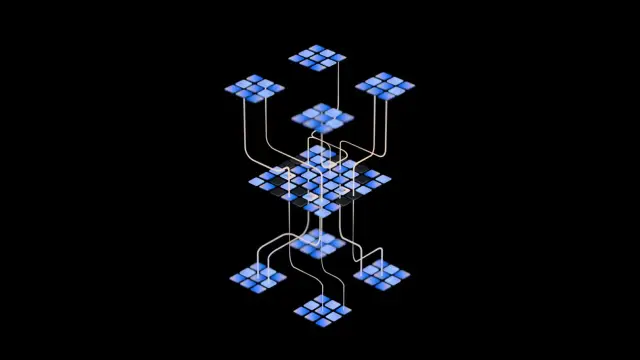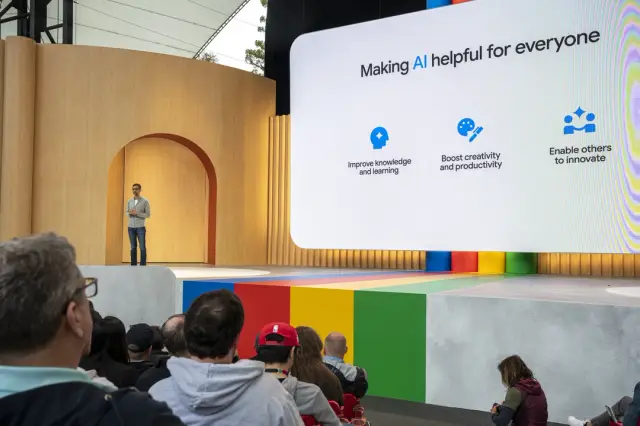Will Gemini Replace ChatGPT?
Explore the capabilities of Gemini and ChatGPT in our in-depth article comparing their unique AI functionalities, areas of application, and potential impact on the future of tech.

As the frontier of artificial intelligence continues to expand, new technologies emerge that challenge the status quo and promise to redefine human-computer interaction. Two significant players in this arena are Gemini, Google's latest multimodal AI marvel, and ChatGPT, OpenAI's highly versatile language model. Both models are on the cutting edge of AI research, but they cater to distinct aspects of the AI-driven future many are anticipating. This article seeks to delve into the intricacies and capabilities of both Gemini and ChatGPT, casting light on their potential trajectories in enhancing or even revolutionizing our digital experiences.
Understanding Gemini and ChatGPT
With its unique ability to process and synthesize information across multiple modalities — including text, images, audio, and video — Gemini represents a significant evolution in AI technology. It's designed not only to understand these different data formats but to reason with them coherently and integrate them. This breakthrough approach enhances applications in various fields, from content creation to complex problem-solving. Meanwhile, ChatGPT, known for its natural language processing prowess, has made waves as an advanced conversational agent capable of generating human-like text responses across diverse domains. It interacts using purely text-based commands, but its ability to learn and adapt has been applied in many scenarios, from writing assistance to tutoring.
The purpose of the comparison
While it might seem like Gemini and ChatGPT are competing for the same spotlight, the reality could paint a picture of complementarity rather than outright rivalry. The purpose of comparing these two AI titans is not to declare a winner but to understand their unique positions in the AI ecosystem and how they might influence the development of future technologies. Each has its strengths and potential applications, and by comparing them, we can better comprehend the nuances of both, the expectations for their growth, and the ways they may change how we interact with machines. This comparison intends to offer insights into the capabilities, breakthroughs, and limitations of Gemini and ChatGPT and to explore the question: will Gemini replace ChatGPT, or will they both find their own niches within the AI world?
What is Gemini?
Gemini represents the latest stride in multimodal artificial intelligence, crafted by the minds at Google to bridge the gaps between different forms of communication and comprehension. As the digital world becomes increasingly complex, with a deluge of information presented in various modalities, Gemini stands as a beacon of integration, seamlessly fusing text, images, audio, and video. This synthesis allows Gemini to process information from these different sources individually and understand and interpret them as interconnected pieces of a larger puzzle.
Overview of Gemini's Multimodal Capabilities
At its core, Gemini's multimodal capabilities signify an ambitious departure from previous AI models limited to single-mode interaction. The advanced design of Gemini enables it to appreciate the subtleties in an image, grasp the semantics of spoken words, decode the syntax of written text, and even extrapolate meaning from video clips. This holistic approach to data processing is what sets Gemini apart, as it can draw inferences, make connections, and provide more contextually rich responses than its unimodal counterparts. By being trained on such diverse datasets, Gemini can perform complex tasks that rely on the interplay of different types of information, drastically expanding the potential for innovative applications in AI.

Key Features of Gemini
The key features that define Gemini include its state-of-the-art efficiency and flexibility across various platforms, from large-scale data centers down to mobile devices. This versatility allows Gemini to be both a powerhouse for high-demand computing tasks and a nimble performer for on-the-go processing needs. Additional standout traits of Gemini encompass its ability to understand and generate high-quality code across multiple programming languages, fortifying its role as a premier tool for developers.
Coupled with its rapid performance on Google's Tensor Processing Units (TPUs), Gemini indicates Google's commitment to AI research and embodies the pinnacle of data processing architecture optimized for real-world demands and scalability. The objective is clear: to make Gemini a reliable, universal model that can be singularly efficient while broadening the horizons for AI-based solutions.
What is ChatGPT?
ChatGPT is a state-of-the-art language processing AI developed by OpenAI, designed to simulate human-like conversation and generate cohesive and contextually relevant text responses. It has been trained on a diverse range of internet text, enabling it to respond to prompts with high fluency and accuracy. This advanced language model has quickly garnered attention for its capacity to assist and even automate tasks that involve natural language, such as customer support, content creation, and various forms of online interaction.
Exploring ChatGPT's Functionality
ChatGPT's functionality stretches across a wide array of language-based tasks. With its roots in the GPT (Generative Pretrained Transformer) series, it has been fine-tuned through both supervised and reinforcement learning techniques to generate human-like text and display a remarkable understanding of nuanced prompts. It can continue conversations, answer questions, and produce written content that is often indistinguishable from a human writer's. The model's flexibility allows it to adapt to diverse styles and tones, making it suitable for various industries and applications. Whether it's drafting emails, scripting dialogue, or creating educational materials, ChatGPT's advanced algorithms enable it to tackle tasks competently.
Core Strengths of ChatGPT
The core strengths of ChatGPT lie in its language understanding and text generation capabilities. It exhibits a clear understanding of syntax, word relationships, and contextual cues, allowing it to maintain coherence over long passages and engage in intricate discussions on various topics. Moreover, ChatGPT is adept in a wide range of languages, further cementing its usefulness in a global context. One of the most remarkable features of ChatGPT is its ability to learn from interaction patterns. Over time, it can refine its output to better align with the preferences and expectations of its users, thereby creating a more personalized experience. These core strengths make ChatGPT an invaluable asset for any task involving the complexity and subtlety of human language, highlighting its potential as a transformative tool in AI-powered communication.
Unique Advantages of Gemini
Gemini emerges as a trailblazer in the artificial intelligence domain, introducing unique advantages that could potentially reshape how we approach machine learning and AI applications. With its advanced capabilities and thoughtful design, Gemini is poised to offer solutions to some of the most intricate challenges facing AI today.
Multimodal Integration
One of the foremost advantages of Gemini is its pioneering approach to multimodal integration. Unlike traditional models that typically specialize in a single modality, such as text or images, Gemini is engineered to concurrently process and understand a variety of data types. This capability provides more nuanced and comprehensive responses by drawing from a rich tapestry of information sources. For instance, when given a prompt that includes both text and a corresponding image, Gemini can analyze the image's content alongside the text to deliver answers that reflect a deeper understanding of both modalities in conjunction. This level of integration enables Gemini to tackle complex tasks that would ordinarily require a combination of specialized unimodal models, from automated image captioning with context from associated articles to answering nuanced questions that rely on cross-referencing visual data with accompanying text.
Efficiency and Scalability
Another significant advantage of Gemini is its emphasis on efficiency and scalability. Designed to run efficiently on an array of devices, from high-powered data centers to more constrained mobile devices, Gemini brings a new level of versatility to the AI table. This scalability ensures that Gemini-powered applications can be widely accessible, catering to a broad user base with varying computational resources.
Furthermore, Google's investment in optimizing Gemini for its state-of-the-art TPU infrastructure enables the model to achieve high-speed computation without compromising on the quality of output. As such, Gemini can process large volumes of multimodal data at a fraction of the time that earlier models may require, making it an attractive option for industries where speed and accuracy are paramount. This efficiency saves time and resources and opens the door to real-time AI applications that were previously beyond reach due to computational constraints.
For no-code platforms like AppMaster, integrating Gemini could dramatically expand capabilities, providing quick backend services and AI functionalities that would normally require extensive manual programming. This efficiency saves time and resources and opens the door to real-time AI applications that were previously beyond reach due to computational constraints.
The Role of ChatGPT
ChatGPT, OpenAI's conversational masterpiece, has carved out a dominant role in the evolving narrative of artificial intelligence. It stands as a testament to the remarkable progress that has been made in natural language processing (NLP) and generation, areas that are fundamental to the human-AI interaction. As we journey further into the AI era, ChatGPT's roles and implications have only become more profound and far-reaching.
Language Processing Prowess
The language processing prowess of ChatGPT is at the heart of its design. Built upon the transformers architecture, this model showcases an incredible capacity to understand and mimic human language patterns with great sophistication. It comprehends grammar, context, and even the subtleties of cultural nuance in a way that sets a new standard for machines interpreting and generating language. ChatGPT can piece together coherent, contextually relevant narratives that are hard to distinguish from text generated by humans. Its ability to construct meaningful dialogue and conversationally provide information has already revolutionized customer service, content creation, and educational tools, providing interactive experiences that reflect a deep linguistic intelligence.

Adoption and Accessibility
A pivotal aspect of ChatGPT's role is its widespread adoption and accessibility. Since its release, the model has seen integration into many platforms, disrupting how businesses, educators, and content creators engage with their audiences. The accessibility of ChatGPT is not only due to its functional ease of use but also because of its availability as a service provided by OpenAI. Businesses of all sizes have been able to incorporate the advanced NLP capabilities of ChatGPT into their operations without the need for extensive AI infrastructure or expertise.
This democratization of advanced AI tools ensures that the benefits of ChatGPT can be widely utilized, allowing more people to experience and engage with AI in a manner that is intuitive and naturally language-based. Furthermore, its ease of integration through APIs has spurred innovation across sectors, promoting the development of applications that were once hindered by the complexities of language understanding and generation.
Will Gemini Replace ChatGPT?
The rapid advancement of AI technologies naturally provokes questions about the longevity and relevance of existing models as newer ones emerge. With the introduction of Google's multimodal AI, Gemini, the conversation inevitably turns to its impact on, and potential to supersede, established language models such as ChatGPT.
Analyzing the Overlap and Differences
At first glance, Gemini and ChatGPT might appear to be in direct competition, particularly in areas where textual analysis and processing are key. Yet, a closer look reveals fundamental differences that suggest they serve distinct purposes. Gemini's forte lies in its multimodal capabilities, being adept at synthesizing information from various data types — images, text, audio — to provide more context-rich interactions.
ChatGPT, on the other hand, specializes solely in the text domain, pushing the boundaries of what can be achieved in language processing and generation. Overlap exists primarily in their ability to handle natural language text, but their respective approaches and broader functions diverge significantly. While Gemini can contextually evaluate text in combination with other data modalities, ChatGPT excels in pure textual conversation and generation, making it a go-to for language-centric applications.
Expert Insights and Predictions
Experts in the field of AI tend to view the relationship between Gemini and ChatGPT as complementary rather than mutually exclusive. They underscore the possibility that the strengths of each model might be leveraged in tandem to achieve outcomes neither could attain alone. Predictions for the future consider the potential of Gemini to enhance multimodal applications significantly while ChatGPT continues to refine and expand the frontiers of natural language AI. Rather than replacing ChatGPT, Gemini might herald a new class of multimodal AI applications that can benefit from the mature language processing capabilities of models like ChatGPT.
In essence, both these AI powerhouses could shape a multidisciplinary AI ecosystem where collaboration and specialization coexist, leading to a richer, more versatile technological environment. Therefore, Gemini may not so much replace ChatGPT as it may redefine how AI can be applied across different modalities, driving the next wave of innovation in the AI sphere.
The Evolution of AI Tools
The artificial intelligence industry is in a constant state of flux, characterized by relentless progress and the perpetual refinement of technologies. As these advancements unfold, the evolutionary trajectory of AI tools becomes marked by significant leaps in capabilities and functionalities. This climate of consistent innovation is driven by the mutual ambition of researchers, technologists, and industries to solve increasingly intricate problems and to push the horizons of what AI can achieve.
Continuous Development and Improvement
One of the most striking aspects of this evolution is the commitment to continuous development and improvement. AI tools, once considered state-of-the-art, undergo cycles of reevaluation and enhancement as new discoveries come to light and computational methods evolve. These improvements often materialize through increased accuracy, efficiency, and the extension of AI applicability into untapped domains. While early iterations of AI models showcased remarkable skills within their respective niches, ongoing research and iterative learning have expanded their competencies, making AI more versatile and attuned to human needs. Simultaneously, the integration of feedback loops and real-world application influences further refines AI capabilities, creating a dynamic where AI tools not only evolve in their performance metrics but do so in accordance with real-world efficacy and relevance.
How AI Tools Complement Each Other
In addition to advancement within individual AI tools, the evolution of the AI toolkit is also characterized by the symbiosis between different technologies. AI models are increasingly designed to be interoperable, with the capacity to complement each other’s functionalities. For instance, the ability of models like ChatGPT to process and generate natural language can be paired with the multimodal analytical strengths of models such as Gemini to create comprehensive systems capable of understanding and interacting with the world in more human-like ways.
This mutual enhancement allows for the development of far more sophisticated applications than any single AI tool could produce in isolation. As the field progresses, we anticipate a seamless blend of specialized AI systems, working in harmony to compensate for each other's limitations, and to capitalize on respective strengths. This ecosystem approach not only maximizes the potential impact of AI tools but also paves the way for innovative solutions that leverage the collective might of these evolving technologies.
FAQ
Gemini is Google's multimodal AI model capable of processing and interpreting various types of data, including text, images, audio, and video, to deliver integrated and context-rich responses.
ChatGPT, created by OpenAI, excels in natural language processing and generation, producing highly coherent and contextually relevant text similar to that of a human.
While Gemini and ChatGPT have overlapping capabilities, particularly in text processing, they serve different purposes. Gemini is focused on multimodal data integration, while ChatGPT specializes in language-based tasks. Their functionalities complement rather than replace each other.
AI models are constantly being developed and improved, becoming more precise, efficient, and adaptable to new applications. They are evolving to work in harmony, offering collaborative strengths across specialized areas.
Industries that require complex data analysis and interpretation, such as healthcare, autonomous vehicles, and content creation, will significantly benefit from Gemini's ability to process multimodal information.
No-code platforms like AppMaster could harness Gemini's AI functionalities to automate complex tasks involving multimodal data, making application development more accessible to non-developers without compromising on advanced capabilities.
AI models like Gemini and ChatGPT are setting the stage for more interactive, sophisticated, and user-friendly applications, contributing to a future of technology that is deeply integrated with AI-enhanced capabilities.





